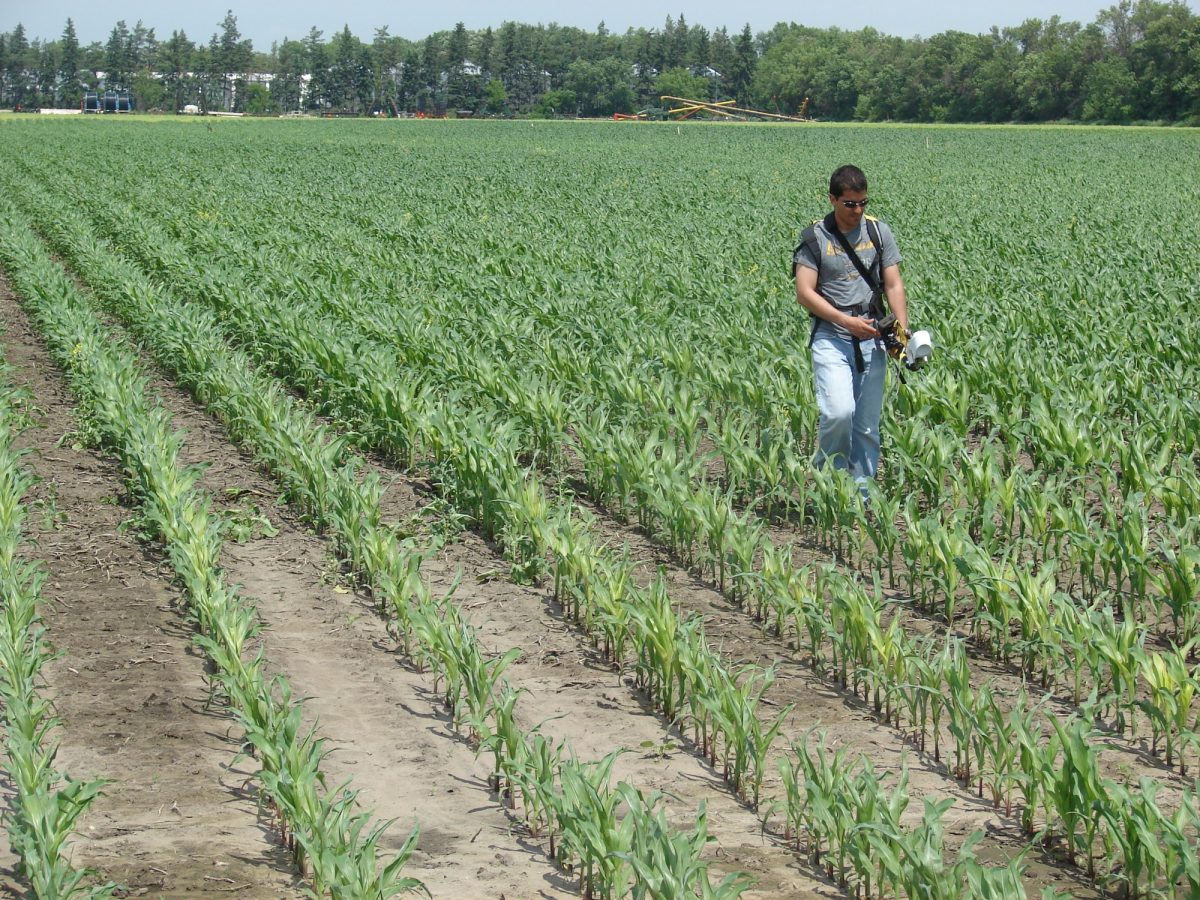
Dr. Marcos Cordeiro conducting field work with sensing equipment.
Making agricultural ecosystems more sustainable
Research models agroecosystems at varying spatial scales
Freshwater is vital for survival, yet according to the United Nations and WHO, worldwide, one in three people do not have access to safe drinking water, two out of five people do not have a basic hand-washing facility with soap and water, and more than 673 million people still practice open defecation.
The goal of the UN’s Sustainable Development Goal 6 (SDG) is to ensure the availability and sustainable management of water and sanitation for all. UM was named host by UN Academic Impact (UNAI) for SDG 6—the only university in North America named an SDG Hub Host—in recognition of its ongoing research and initiatives that contribute to advancement of the goal of clean water and sanitation for all.
The UM UNAI SDG 6 Hub Working Group is made up of researchers (faculty and graduate students) undertaking research in the areas of SDG 6.
Marcos Cordeiro is a member of the Working Group and an assistant professor in the Department of Animal Science in the Faculty of Agricultural and Food Sciences. UM Today caught up with him recently to learn a bit more about him and how his research advances the SDG 6 goals for clean water and sanitation.
Tell us a bit about yourself and your current research.
I am a two-time graduate (MSc, PhD) of the UM and former international student. I completed my PhD in Biosystems Engineering. I returned to UM in 2019, after completing my post-doctoral research at Agriculture and Agri-Food Canada (AAFC). My research focuses on modelling of agroecosystems at varying spatial scales. I am working on further developing sustainable food systems modelling, which involves both crop and animal production. I conduct agro-environmental modeling, statistical analysis of large datasets, spatial analyses using GIS and remote sensing.
How does your research align with the UN’s SDG 6 goals for clean water and sanitation?
Water is a key aspect related to the sustainability of agroecosystems, not only from a production perspective but also from a nutrient dynamics’ standpoint. One of the objectives of my research is to improve nutrient dynamics (water quality) and water-use efficiency in crop and animal agriculture, which relate to SDG targets 6.3 and 6.4, to improve water quality and increase water-use efficiency, respectively. My research also focuses on increasing the sustainability of grassland ecosystems and associated wetlands, which relates to SDG target 6.6, to protect and restore water-related ecosystems.
What impact do you hope your research will have in the long-term?
I hope my research will promote management practices that reduce water use and nutrient export in agriculture. Recent findings from our research in collaboration with AAFC shows that the beef industry uses 17% less water for each kg of beef than 30 years ago. This is encouraging. We hope to find new ways to keep increasing this efficiency across other agricultural sectors in the years to come.
What is something that people would find surprising about you?
Although I work with digital tools all the time, I was brought up in the tail end of the analog era. So, I’m fond of analog gear. That said, I also think it’s important to remember where all this technology came from. Now that we have Alexa to turn on the lights, let’s not forget Thomas Edison in the first place.
Research at the University of Manitoba is partially supported by funding from the Government of Canada Research Support Fund.






